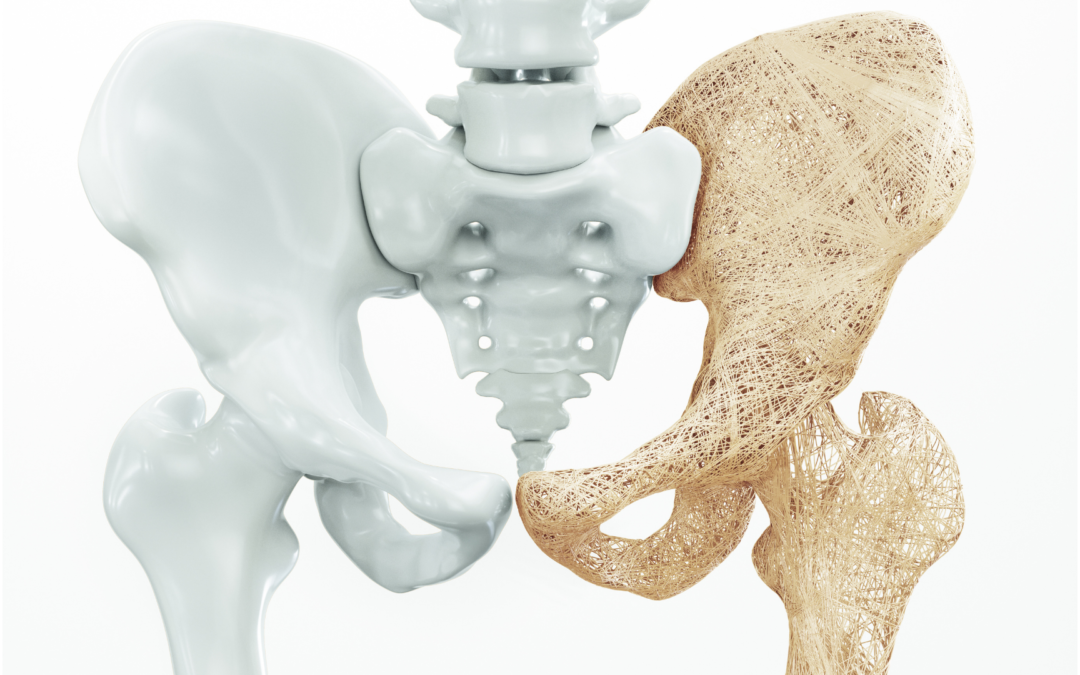Osteoporosis is a condition that weakens and brittles bones, making them more prone to fractures. Over time, the bones lose density and develop porous structures, which lead to easier breaks. Normally, our bodies continuously absorb and replace bone tissue. However, osteoporosis occurs when the body absorbs bone faster than it can replace it, which weakens the bones.
How is Osteoporosis diagnosed?
Osteoporosis is detected through a bone density scan known as a DEXA Scan. This scan uses X-rays to measure the amount of calcium and other minerals present in your bones. The results of a DEXA Scan are classified into T-scores, which assess your bone health:
- A T-score of -1 or higher indicates healthy bones.
- A T-score between -1 and -2.5 suggests osteopenia, a clear warning that your bone density is decreasing, and you are at risk of developing osteoporosis.
- A T-score of -2.5 or lower places you in the osteoporotic category.
Risk factors
While osteoporosis is more commonly diagnosed in women, men can also be affected. Several factors contribute to the risk of developing osteoporosis, including:
- Family History
- Low calcium intake
- Low Vitamin D levels
- Medical history (such as coeliac disease, diabetes, anorexia, thyroid conditions, and rheumatoid arthritis)
- Certain medications (like corticosteroids, common in asthma treatments)
- Lifestyle factors (low physical activity, smoking, excessive alcohol intake, small body build, and low body weight)
Treatment options:
Exercise
When it comes to osteoporosis, prevention is far better than cure. Regular bone density scans help monitor your bone health, and osteopenia is often the first official warning sign. If you’re at risk and haven’t yet taken action, now is the time to start.
Exercise plays a critical role in not only preventing bone loss but also in strengthening bones. Specifically, weight-bearing activities, such as lifting, pushing, and pulling weights, are essential.
If you’re new to exercising, it’s best to begin with bodyweight exercises and gradually increase intensity. High-impact exercises like jumping can also be beneficial, as they expose bones and joints to higher forces, which helps reduce bone loss over time.
Supplements
Calcium supplements, often paired with Vitamin D, are commonly prescribed to support bone health. Calcium is necessary for building strong bones, while Vitamin D is crucial for enhancing calcium absorption. However, it’s always best to consult your GP before taking any supplements, as underlying conditions should be considered.
Medications
In some cases, GPs may prescribe medications to slow bone loss and improve bone density, which reduces the risk of fractures. These medications are available in various forms:
- Tablets: Fosamax and Actonel.
- Injections: Prolia, administered every six months.
- Intravenous Infusions: Aclasta, administered annually.
If you suspect you may be at risk of osteoporosis, your first step should be to consult your GP. They can arrange for testing and recommend the best treatment options for your situation. Additional guidance can be provided by health professionals like dieticians for nutritional advice, and physiotherapists or exercise physiologists for creating tailored exercise programs.
Do you have any questions?
Call us on (03) 9857 0644 or (07) 3505 1494 (Paddington)Email us at admin@mdhealth.com.auCheck out our other blog posts hereOur clinical staff would be happy to have chat if you have any questions.
Take the first step to a healthier you!
Would you prefer for someone to contact you regarding booking your Initial Physiotherapy appointment, Initial Exercise Physiology, Initial Osteopathy session or FREE Full Body Assessment*?
Or do you have any other enquiry about our services at MD Health?
Please fill in this form and someone from MD Health will be in touch with you soon.
Alternatively please call us on 03 9857 0644 (Kew East), 03 9842 6696 (Templestowe), 03 8683 9442 (Carlton North) or 07 3505 1494 (Paddington) to book now!
For all new clients who wish to come in for a one-off, casual or adhoc basis for Physiotherapy or Exercise Physiology the Initial Physiotherapy or Initial Exercise Physiology appointment is a paid service.
** The 13 Week Clinical Pilates Program at MD Health is not a lock in contract and you are not required to attend for the full 13 weeks if you do not wish.
Get In Touch



